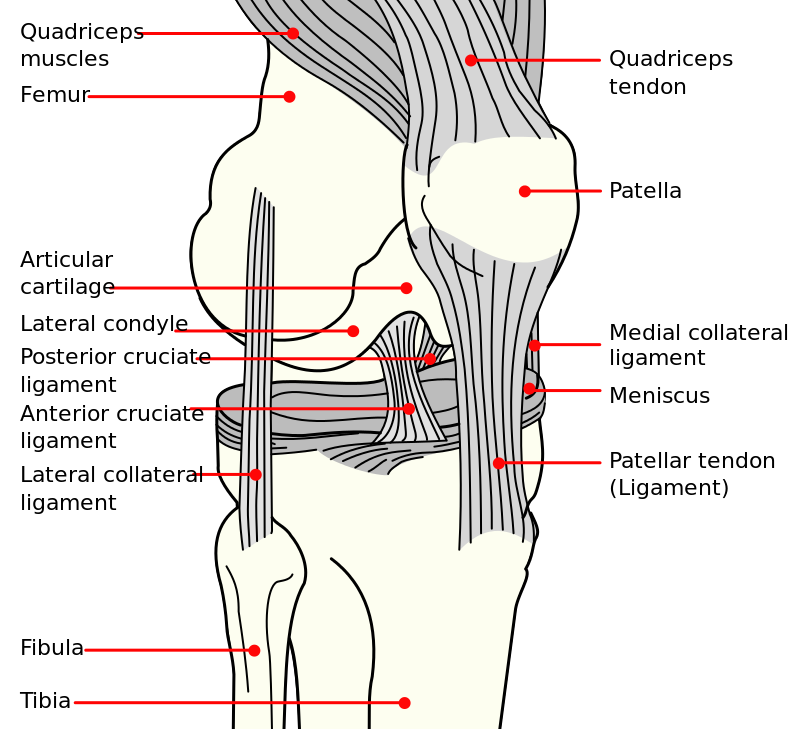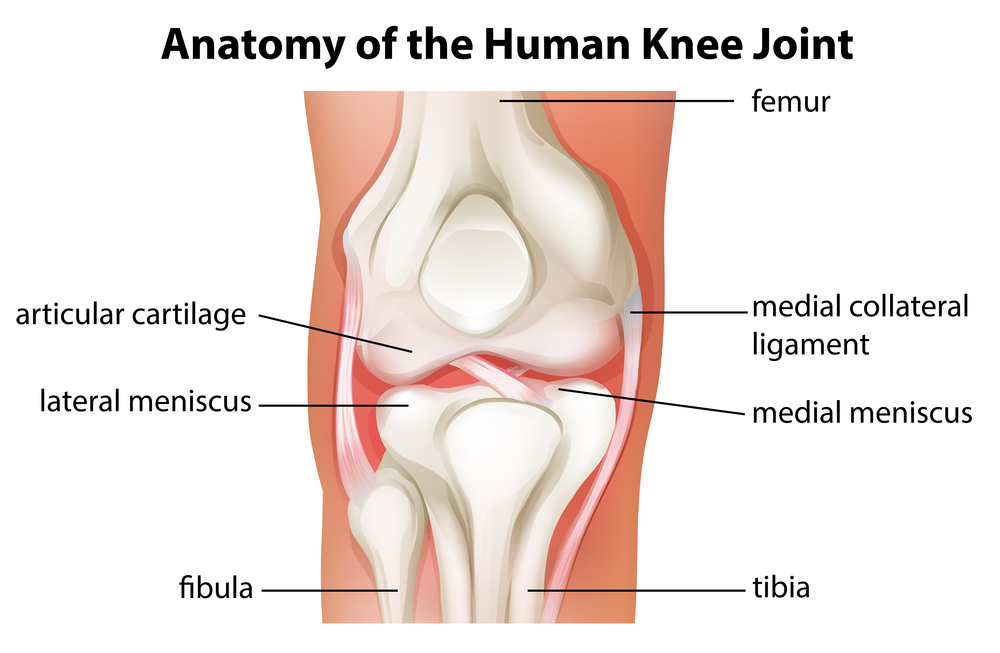|
|
Can stem cell therapy be used to treat an ACL tear or torn meniscus? While these injuries are traditionally treated using invasive orthopedic surgeries, stem cells are now emerging as a therapeutic alternative.
In this article:
- Stem Cells for ACL or Meniscus Tear
- Are Stem Cell Treatments for Knees Safe
- GIOSTAR Review
- Regenexx Review
- Stem Cell Institute Review
- Can Stem Cell Therapy Regrow Meniscus
- Does Stem Cell Therapy for Knees Work
Stem Cells for ACL or Meniscus Tear
An anterior cruciate ligament (ACL) injury occurs when the anterior cruciate ligament (ACL) is either partially or completely torn. ACL tears commonly occur during sporting activities and are usually caused by a rapid change in direction or impact, although a range of other stimuli can also cause them.
A torn meniscus occurs when the meniscus within the knee is damaged. The meniscus is a curved structure within the knee that partly divides the joint cavity. It is composed of fibrocartilaginous, which is a mixture of fibrous tissue and cartilage tissue that make the meniscus both strong and flexible. Sporting injuries that involve twisting, turning, or impact to the knee can cause this injury.

Traditionally, both of these injuries have been treated through orthopedic surgeries. This is gradually changing as physicians realize the power of stem cells to address orthopedic injuries.
Are Stem Cells Treatments for Knees Safe?
Several groups now offer safe and effective stem cell treatments for knee injuries, including GIOSTAR, Regenexx, and the Stem Cell Institute, among many others. However, there are also stem cell clinics that do not comply with FDA law. These stem cell clinics get mailed FDA warning letters.
To choose a safe provider of stem cell treatments, ensure that the treatment you are considering is either:
- FDA approved, or
- Being studied under an Investigational New Drug Application (IND) – An IND is a clinical investigation plan submitted and allowed to proceed by the FDA, or
- Meet the FDA’s standards to be conducted without the need for FDA approval or an IND
When in doubt, do an online search for the clinic or physician you are considering. FDA warning letters rank well in Google, so it is easy to find these results.
GIOSTAR Review
GIOSTAR is a research driven stem cell company renowned for its innovative regenerative therapies. Specializing in the use of adult mesenchymal stem cells (MSCs), GIOSTAR’s treatments deliver these cells either intravenously or directly to the site of injury/damage. With a focus on conditions like ACL tears, meniscus repair, and orthopedic applications, GIOSTAR’s stem cell therapies harness the natural healing powers of stem cells to repair and rejuvenate damaged tissues.
Since it was founded in 2008, GIOSTAR has completed an incredible 14,000+ stem cell treatments are its U.S. and international locations. With headquarters in Chicago, Illinois, the company is supported by prominent scientists and physicians trained in the US and abroad.
For patients who want to receive treatment within the United States, GIOSTAR represents one of the most experienced providers of stem cell treatments.
To learn more about GIOSTAR’s options for ACL tears or torn meniscus, please contact them here.
Regenexx Review
Founded in 2005, Regenexx is another incredible company that specializes in orthopedic applications of stem cells. It offers two variations of its Regenexx procedure, a same-day procedure and a procedure in which the stem cells are cultured in a laboratory setting to increase them in number.
For Regenexx’s same-day procedure, it uses autologous (“self derived) adult stem cells. This includes both mesenchymal stem cells (MSCs), as well as hematopoietic stem cells (HSCs), macrophages, and other cells present in a patient’s same-day isolation. This procedure is offered at clinics within the U.S.
The company’s other approach is its cultured mesenchymal stem cell (MSC) procedure, where the cells are expanded in number before being re-injected into the area of injury. For the company’s cultured expanded procedure, it is only the mesenchymal stem cells (MSCs) that are expanded.
Because of the regulatory environment in the U.S., the culture expanded stem cell procedure is only performed by a third-party through a license in Grand Cayman. In this procedure, the stem cells are multiplied outside the body in a laboratory, creating larger quantities of the therapeutic cells.
The same-day procedure is what it used in the United States to comply with FDA regulation of human cell and tissue-based products, known as HCT/Ps.
In addition to studying its procedures for the past 20 years, Regenexx it maintains the world’s largest human MSC re-implantation registry for orthopedic purposes. You can view its latest research here.
Stem Cell Institute Review
The Stem Cell Institute another prominent leader in stem cell research and therapy that treats orthopedic injuries with stem cells. The group was founded in 2006 by Dr. Neil Riordan, a globally regarded stem cell expert. Treatments offered by the Stem Cell Institute utilize allogeneic (donor) umbilical cord stem cells collected after full-term births, as well as autologous (self-derived) bone marrow stem cells.
Dr. Riordan operates the Stem Cell Institute in Panama and the Roirdan Medical Institute (RMI) in Southlake, Texas. These clinics can treat patients for a a wide range of orthopedic applications.
The Stem Cell Institute reports that it has performed over 25,000 patient procedures, making it one of the most experienced stem cell treatment centers in the world.
The primary downside of getting treatment through the Stem Cell Institute is that most patients will need to travel to Panama to receive treatment, which can lead to higher travel costs and expense. Of course, if you would enjoy a trip to Panama, then this could be a perk instead of a drawback.
Can Stem Cell Therapy Regrow Meniscus
There are several proposed mechanisms as to how stem cells might heal knee injuries. These mechanisms include paracrine signalling, differentiation into new cell types, and exosomes (small vesicles released by cells).
For an ACL tear or torn meniscus, patients will often be good candidates to be treated using same-day stem cell procedures. Most ligament and tendon tears can be using stem cells, as long as there is reasonable approximation between the tissues. As a result, the majority of people experiencing an ACL tear can now avoid orthopedic surgeries by pursuing a stem cell treatment within the U.S.
According to Regenexx, kness are the most common body area treated with stem cells. The next most common conditions are shoulder and hip, followed by foot, ankle, and hands.
However, if the damage is severe, physicians may recommend that a patient travels offshore to access culture expanded stem cells. Because this approach is not allowed within the U.S., Regenexx offers offshore treatments at its Grand Cayman location and the Stem Cell Institute can treat patients in Panama.
For a large ACL tear in which the two parts that are separated by an inch or more, the injury will likely not be appropriate for a minimally invasive, needle-based procedure.
Does Stem Cell Therapy for Knees Work?
If you have a knee injury and are considering possible alternatives to surgery, the video explains how to identify if you are suffering from a meniscal tear and whether you may or may not need surgery. It also discusses whether stem cell and biologic treatments may provide you with an effective treatment approach.
The physician in the video is Dr. Mayo Friedlis. He is part of a group called Stem Cell Arts that practices the Regenexx procedure.
Seeking a Treatment?
As the world’s largest publisher of stem cell industry news, BioInformant understandably cannot provide clinical treatments or advice. For this reason, please contact GIOSTAR with your medical questions. You can reach them at this link to schedule a consultation or ask them your questions. You are also welcome to contact Regenexx, the Stem Cell Institute, or other medical providers. As always, it is critical to discuss your treatment plans with your primary care physician.
You can also read the U.S. FDA’s Patient and Consumer Information about regenerative therapies at this page.




















Is it true that apheresis of Bone narrow stem cells yield mesenchymal stem cells capable of regeneration of articular cartilage if knee joint or can be used to repair torn ACL ?